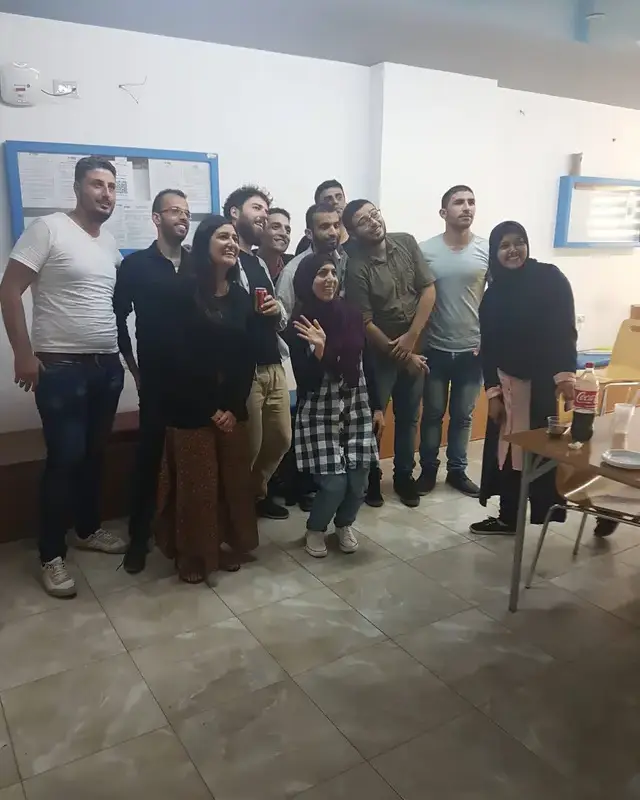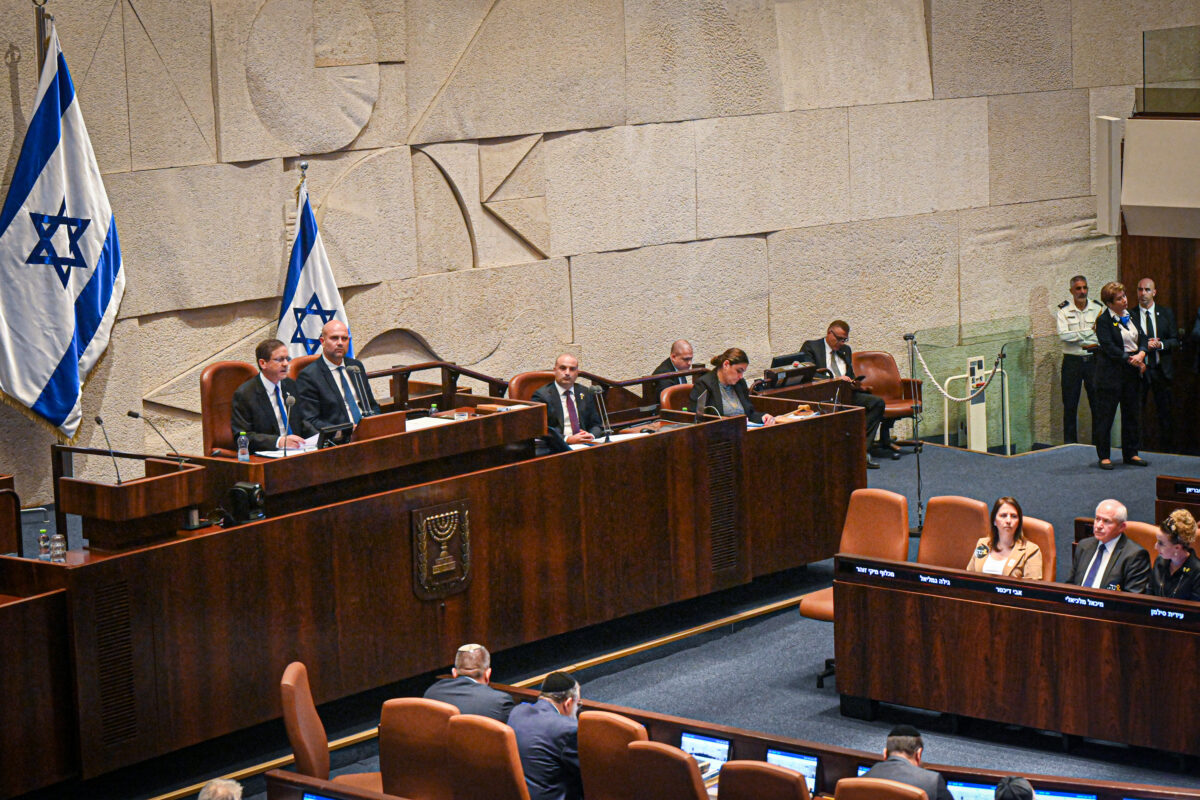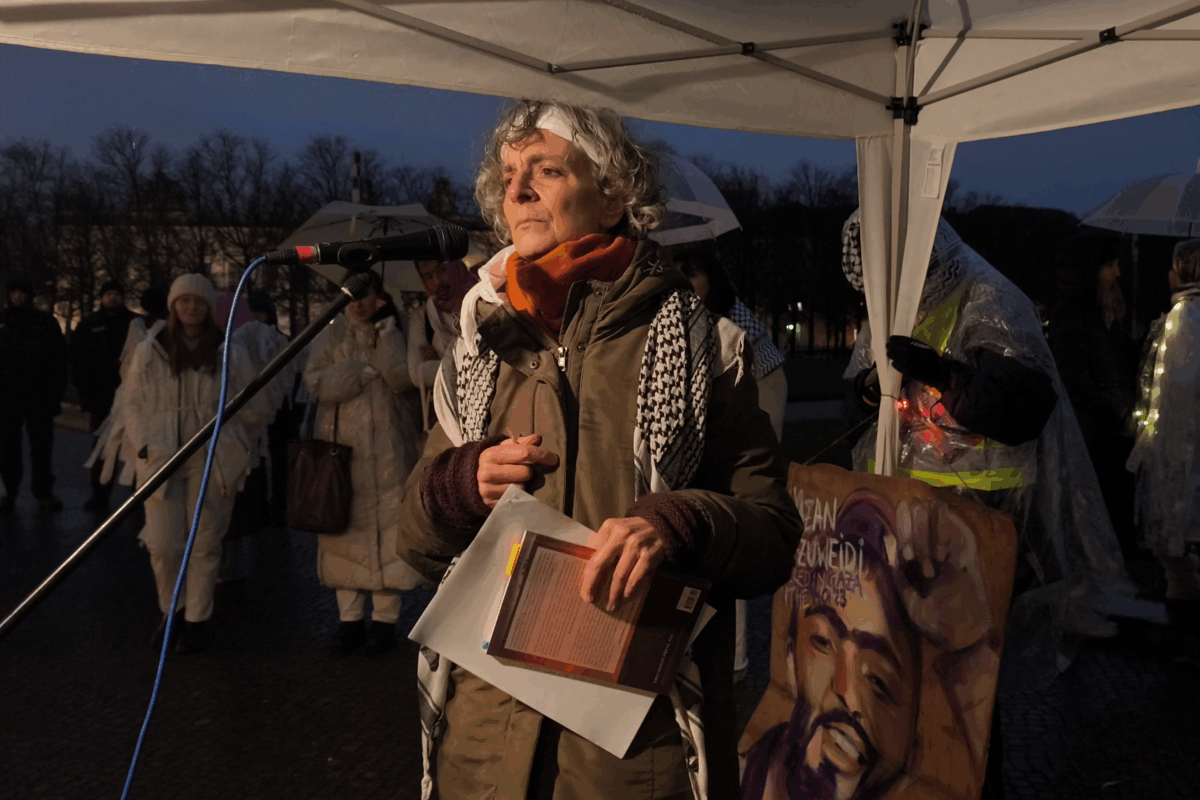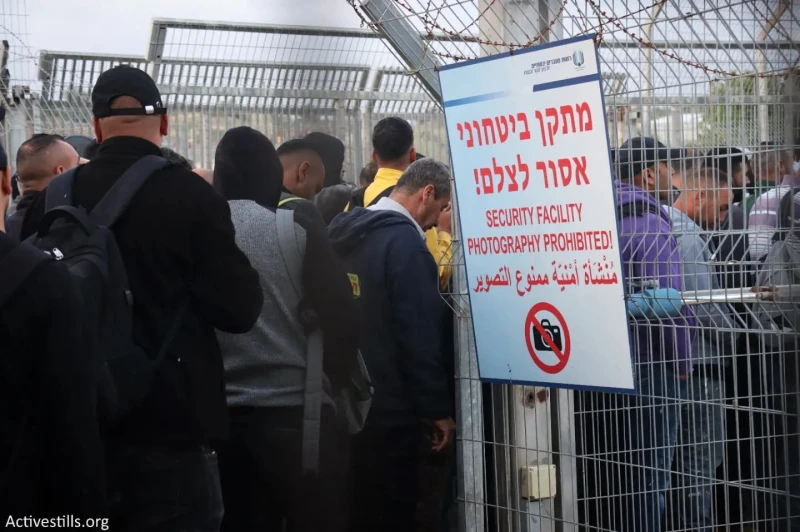Gaza Champions is a mutual aid network founded by Anam Raheem and Matt Davis that places people in direct contact with families in need of support in Gaza, allowing them to directly fundraise for those hit hardest by the war. The champions are also pen pals with their families in Gaza, learning about their lives and experiences, building morale and helping them to better tell their stories. In times of staunch political division and polarization, Gaza Champions manages to cut through, and in its own way, enables people across the world to make small, albeit concrete contributions to the lives of people, who they now have meaningful relationships with. The Left Berlin spoke to Anam and Matt to learn more about the organization.
TLB: Can you tell us about your connection to Gaza?
Anam Raheem: Both Matt and I worked for Mercy Corps, which is an American international humanitarian aid organization. Specifically, we were working for a program called Gaza Sky Geeks, a Google-backed tech hub in Gaza City. The idea was to connect the youth in Gaza to the outside world, to earn dignified incomes by participating in the global tech industry. It wasn’t a typical NGO job where we were in an office and would have field visits. Instead, we were based in a community center in Gaza. We would have hundreds of people come through our doors every day, and so, we developed very close relationships with the people in Gaza, irrespective of whether they were our team members or people who participated in our program.
TLB: When was this roughly?
AR: So I was there from 2017 to 2021, and Matt left just before October 7 2023.
TLB: And it was after that that when you started thinking about Gaza Champions, right?
AR: Yeah, so it started about a year ago. As I’m sure you know, all these GoFundMes started coming out of Gaza. And because Matt and I both have a huge network in Gaza, many GoFundMes started coming our way. At first, I was just using my Instagram page to share GoFundMes, to try and tell the story of this or that person, and mobilize my small network to contribute. But very quickly it became overwhelming– with hundreds of GoFundMes it wasn’t effective to just fill my Instagram with these stories.
I have a friend in DC and she sort of naturally connected with some of my friends from Gaza on Instagram, and formed a pen pal relationship with one of them, and started promoting her GoFundMe, saying “This is this person, this is what I’ve learnt about them – let’s support them!” And that planted the seed for me– this one to one relationship where someone is just telling the story of someone in Gaza in a very human way, and using their platform to mobilize funds for them. At the time the border was open, so there was hope for their evacuation, but these days, with the border closed, people still need to survive day-to-day life, the cost of which is severely inflated during wartime.
I started out by simply writing a call for volunteers in the notes app on my phone and posting a screenshot of it on Instagram. That post went pretty far, I think the first wave was about 60 people. And then I told Matt about this idea and we created a spreadsheet to have a mechanism to start matching the GoFundMes we have with people who are volunteering. And that’s how Gaza Champions was born.
MD: For the first six months of the genocide, we were in shock, like everyone else. We were doing what we could, posting and so on, but by February or March it had gotten to the point where everyone in Gaza had run out of money and needed help, so it was a way of dealing with that feeling of wanting to share stuff my friends were sending me, but knowing that that wasn’t going to help.
TLB: So it sounds like the pen pal connection was part of it from the beginning.
AR: Yeah, the idea was that it wouldn’t be this anonymous thing, and that you would be in direct contact with someone, supporting them. I think what’s really effective, is being able to tell a story over time– this is a person I know in Gaza, this is what they went through this month, and from our fundraising, they were able to get a tent, for example. Some champions FaceTime with their person in Gaza with their whole family, so the whole family rallies around them and checks in on them and wants to know how they’re doing. It’s flourished beyond what I could have even hoped for.
TLB: There’s also a kind of accountability that comes through that as well – there’s a degree of responsibility that you feel as the connection with your family grows.
MD: It’s not even accountability, it just makes it feel more real. That’s the amazing way in which it has bloomed. When we worked at Sky Geeks there were about 40 people in the office, and some of them were super close friends, while others I would chat with but I wouldn’t still be close with them. But they’ve connected with some of my friends in England and now they’re really close friends, better than I ever knew them in person. So it’s that human element.
AR: Yeah, the thing that’s really motivating is friendship, right? If the world has turned on your friends you would do whatever you could to help them. And I think that is what keeps me sane, because there’s a lot of rage we all feel, but more than that rage, I feel love and concern for my friends. It’s also a great way of bringing people into the cause. You’re not just fighting for this abstract “Free Palestine” concept, you have someone in Gaza to help get through this. It keeps people motivated and helps not to burn out or give up.
TLB: Do you have any way of measuring the impact? Do you know how much you’ve raised across all of the different Champions?
MD: The short answer is we have no idea. At one point I was trying to track it a little bit, by looking on GoFundMe how much money had been raised before and after we connected people. But it’s hard to track because there’s no public API for GoFundMe, so getting the data is really hard.
AR: Yeah, we are doing this in a totally voluntary capacity. We know that we have 150-ish champions in 13 countries. In terms of impact, we have some beautiful anecdotal evidence– some people that were able to evacuate directly, and others who have had months of groceries covered because of their champions. But, yes, we don’t have a dollar figure estimate because we just don’t have the capacity.
TLB: Have you had any political opposition or pushback to the project?
AR: Well, generally speaking, it has been pretty insulated from the pushback and hate. I think that’s primarily because this is mutual aid, not protest or direct advocacy, keeping it very human to human. Especially compared to all the other kinds of actions and demonstrations and how charged things can get, Gaza Champions is like, warm and fuzzy.
There was one champion who reached out to me to say “Someone in my network googled the person I’m championing and found tweets around October 7, celebrating this act of resistance, so I don’t know if I can champion this person anymore.” I then reasoned with them, that while it was up to them to champion or not, I would call into question the motives of someone who put in their time and effort to look up someone enduring genocide, to find a reason not to support their humanity or support their survival.
It brings in the perfect-victim framework that Mohammed el-Kurd puts into context in his book, Perfect Victims. We need Palestinians to be ideologically pure, according to Western standards, to be worthy of our care and support. This is just one instance, but that person has continued to be a champion, and it shows how this can expand people’s political education around Palestine, because you’re not just thinking of it as an abstract cause, these are living, breathing humans.
Violence sucks, but we can understand that if someone is living under oppression, they have seen so much death, so much loss, and so much loss of opportunity. So if they see this as the first punch thrown against their oppressors, I can understand why someone might look at that day and feel a certain way, feel a certain catharsis. And it goes beyond that. You get to understand Islam through them, you get to witness Ramadan through them. So this is a really beautiful form of political education, that’s very practical, and isn’t in the form of demonstration or protest.
Something else that comes up a lot, is people wanting to know if these are verified campaigns. And it’s tricky, because it’s verified in the way that mutual aid is just a network, right? We know a lot of these people directly, but we also don’t know some of them. It’s just all word of mouth. So our rule is that it’s either someone we know directly or it’s being referred to by someone we trust– that’s the extent of our verification. On top of that, a lot of people want to be donating to a registered non-profit with a 501(c)(3) status– things that have, like, a Western stamp of approval. So Gaza Champions is about shifting how we think about aid in Palestine, or in a war-torn region, by going directly to people in a mutual aid format, as opposed to having our resources gate kept by big organizations.
MD: Anam and I were both working at a major NGO where we had to deal with a lot of red tape, and our hands were tied in a lot of situations, so being able to just do this has been very freeing. I love that there’s this moment where we connect people, and just say “Okay, you guys go do it.” When people are first connected, there might be some uncertainty, but as the relationship builds, it resolves the issue of verification– I don’t think that any of our champions would ever be questioning the people they are raising money for. And sure, we have more families who need help than champions at the moment, so you see why the red tape developed, because we just have to randomly pick cases. But it can also be a barrier, when you have to tell people you can’t help them because they don’t meet a certain set of criteria.
Going in, we had no idea of what it was going to become. I don’t think at any point did we expect it to get this big. And this has been a group learning experience, where one champion does one thing, and then they share that with others. This natural evolution– that is what solidarity is. The past two years have been really horrible, and there have been so many awful moments, and me and Anam have said to each other many times that doing Gaza Champions is what got us through.
AR: Yeah, it absolutely has kept me afloat. We are deeply personally affected by it, so to see that there are other people who care, and want to do something, even if they have never been to Gaza, is really uplifting. I like to focus on that. Of course there are the toxic trolls, and they make me want to do bad things, but if I didn’t have Gaza Champions, I don’t know where I would be right now.
You can support Gaza Champions or become one yourself! Sign up here.




